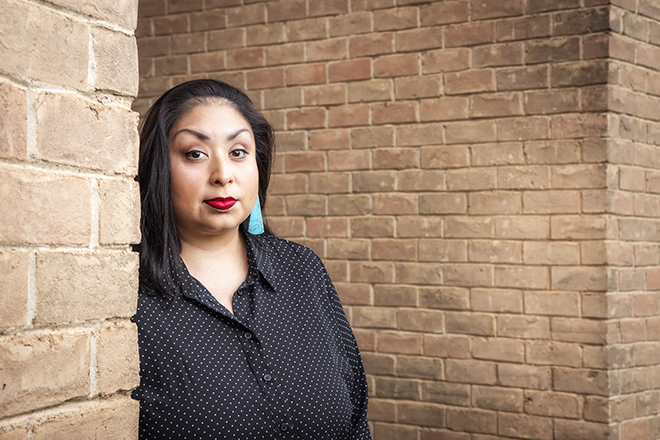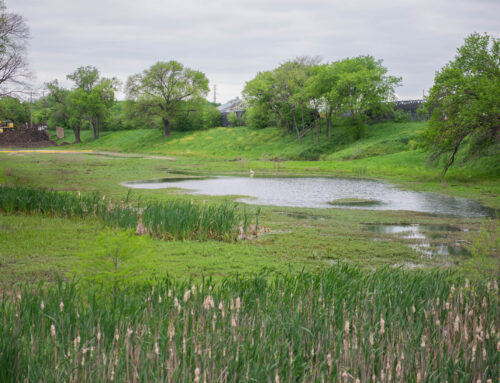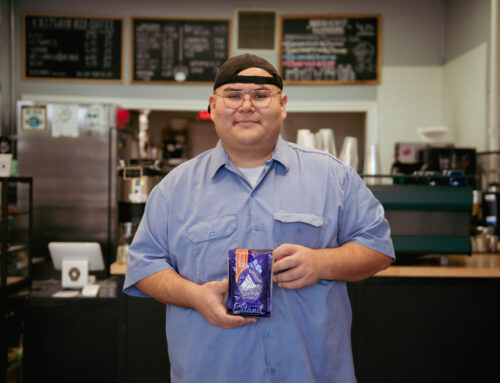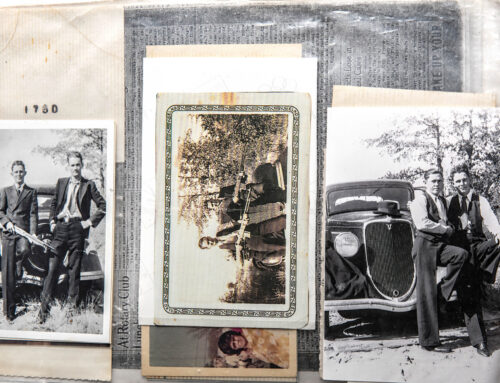
Two Oak Cliff women are among those who made American Indian Heritage Day happen in Texas.
Peggy Larney originated the bill in the Texas House of Representatives calling for the last Friday in September to be a day to recognize the historic, cultural and social contributions of American Indians.
Jodi Voice Yellowfish helped write the bill in 2013, and the Texas Legislature approved it so quickly that they were surprised with congratulatory calls. After that, Yellowfish lasered in on Missing and Murdered Indigenous Women.
She stays home as the full-time parent in a household that includes her husband, her older sister, a niece and two nephews.
The rest of her time is spent watching city council meetings and doing volunteer work for Our City Our Future, a coalition of nonbinary Black, indigenous and people of color who advocate for their communities at city hall.
She grew up in Arcadia Park after one of her parents wound up here as part of the Indian Relocation Act of 1956, which encouraged Native Americans to leave reservations and assimilate into urban areas.
Listen to her explain that legacy on episode No. 44 of De Colores Radio podcast.
American Indian Heritage Day
There was this need to celebrate the culture but also to uplift contemporary victories and work. That was something we hadn’t seen. It’s not just a celebration of culture and heritage. We’re often relegated to this very romanticized past. And we have to deal with this education exhaustion. We can’t just talk about our struggles today and what our communities are fighting for, we also have to educate and explain our history, and I don’t see that for anybody else. People want to know about the sad struggle of our history and show the regalia and song. But the contemporary struggles and victories are often overlooked. It’s something people don’t realize. We’re not just what our culture has been in the past. We’re an ever-evolving group of people.
Missing and Murdered Indigenous Women
Our country was colonized with violence, and it’s never really stopped. We still have to deal with these issues of violence. We still have these historical traumas, but being in a huge city like Dallas and sometimes not having the resources is a struggle that we continue to deal with. We’ve really opened a lot of doors and found resources to help MMIW families fill in the gap. It’s sad, and it’s very traumatizing work for groups like ours, but there are small victories every time we help a family.
“We’re not just what our culture has been in the past.
We’re an ever-evolving group of people.”
What the work is
There was a grandmother in our community. I didn’t know her personally, but I knew of her, and her granddaughter went missing. That really sparked the conversation. We were raising awareness, but we weren’t prepared for a rapid response protocol. We just went with our gut, and by that evening, I was with her and her family trying to figure out how we could help. She needed her people to help because she was reliving past trauma that happened to her. Her granddaughter [was later found and brought to safety] but we saw that we needed to look at the broader picture. There was trauma that had been passed along through generations. Not only were we having to navigate her case, but we were also having to see what we could do for the grandmother as well because it was triggering and re-traumatizing. She’s now an active member with our group, and she’s become a very beautiful and strong voice in this work. We deal with a lot of people running away, and that’s deeply rooted in sexism and racism that doesn’t get handled in a meaningful way. We’re raising awareness on domestic violence and helping people find resources. Sometimes people are fleeing for their lives, and they’re looked at as runaways.
Future worries
I’m seeing for the American Indian community, but also for everyone, a lack of resources in so many ways. I see a lack of getting basic needs met and constantly being in survival or crisis mode. We shouldn’t all have to live with that stress. Living through a pandemic and the domestic violence situations that can come from that is very worrisome.
Her motivation
I’ve always been fortunate and blessed to have resources for my family. A lot of people can’t handle the stigma around mental health and needing to handle emotional and stressful situations. I see how my family needs that kind of help. And it breaks my heart thinking about people who may not have the strength to ask for help or the ability to find resources.





